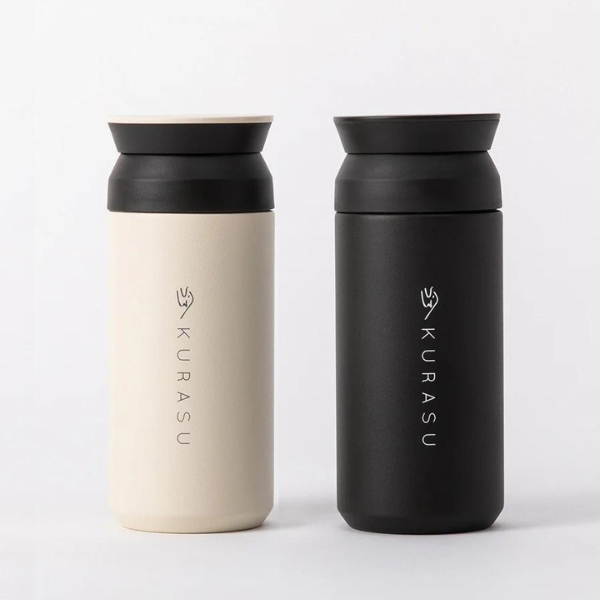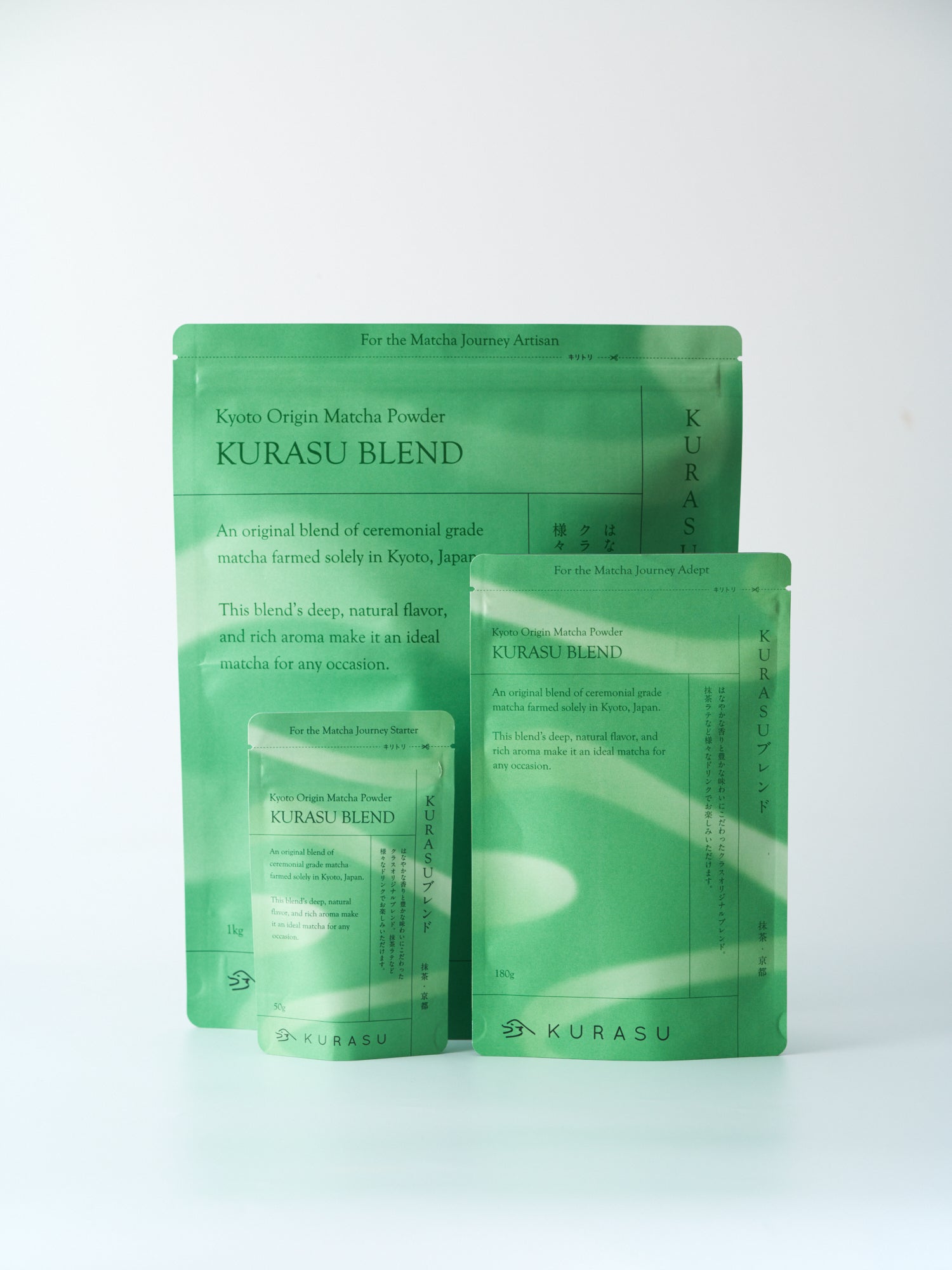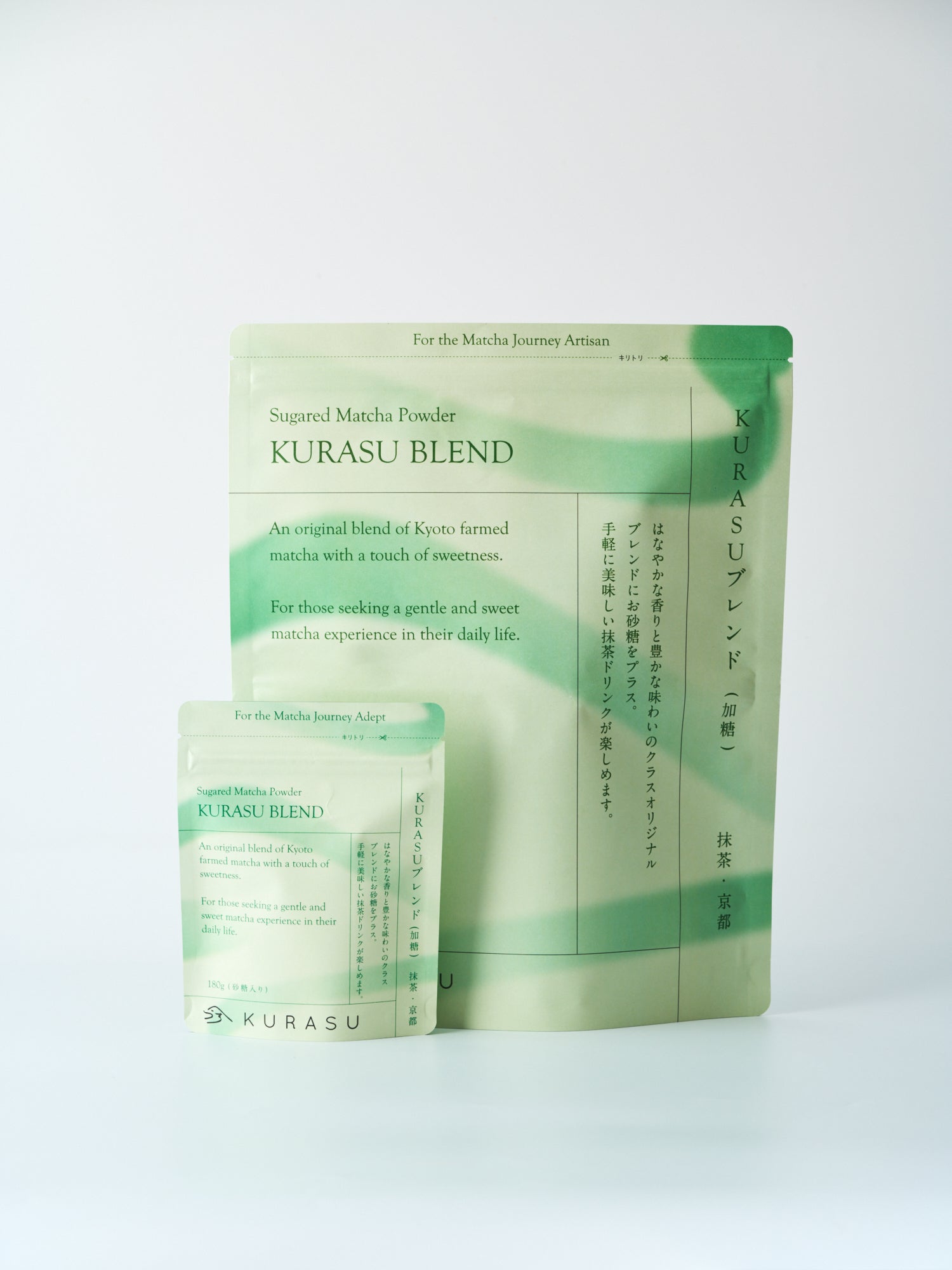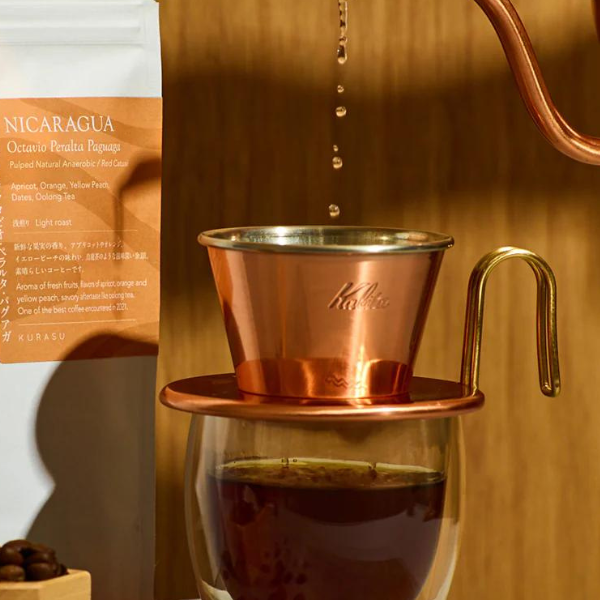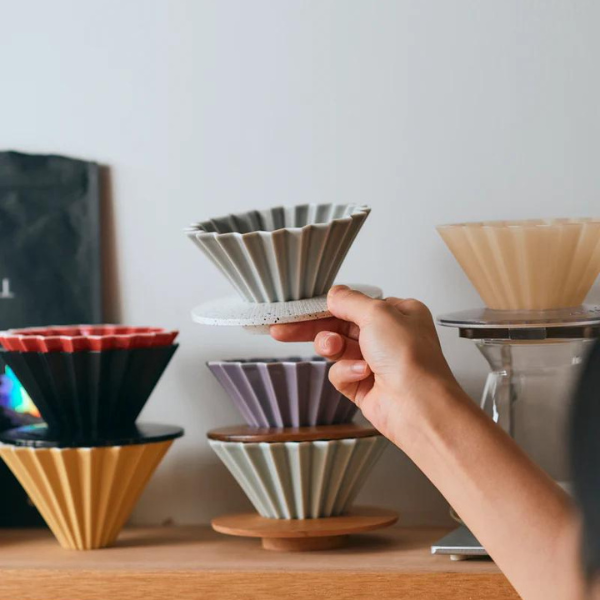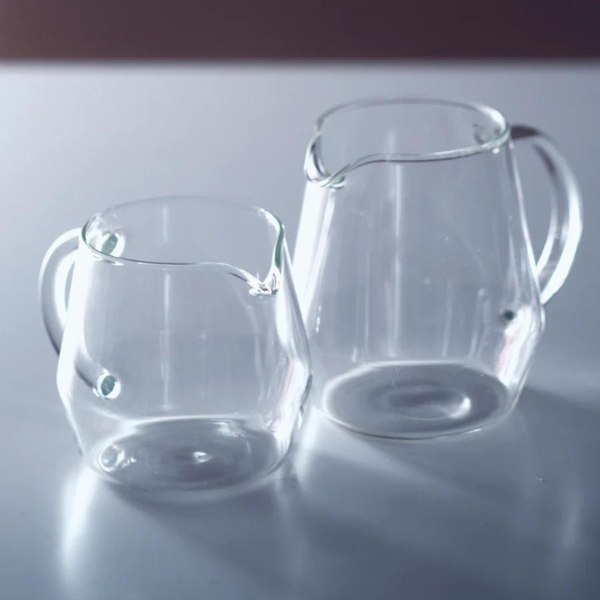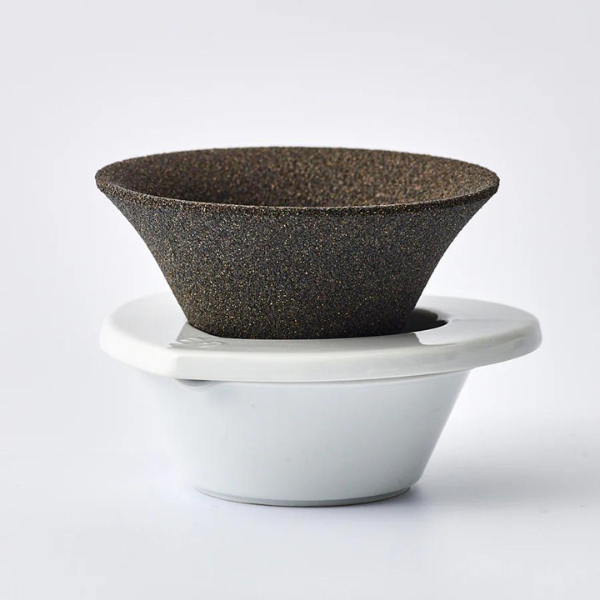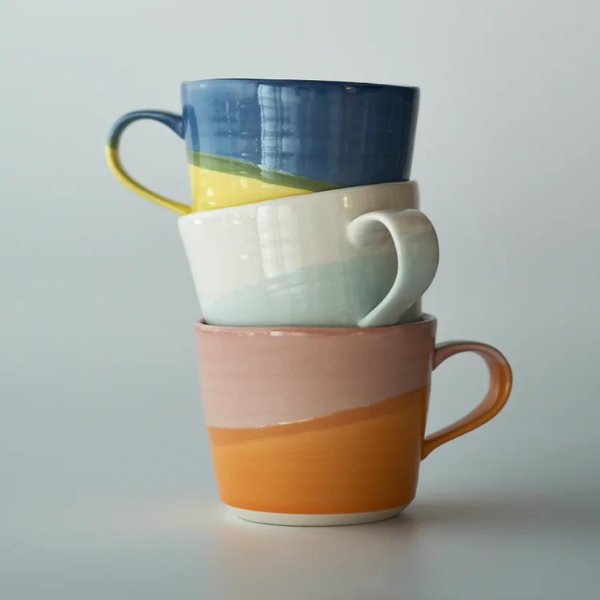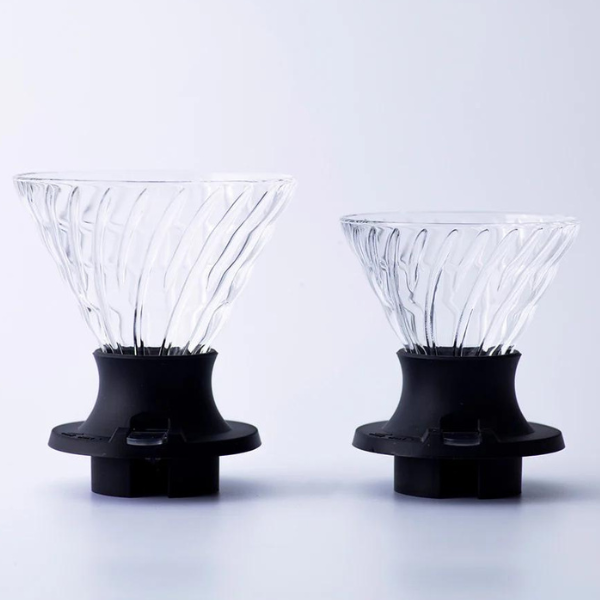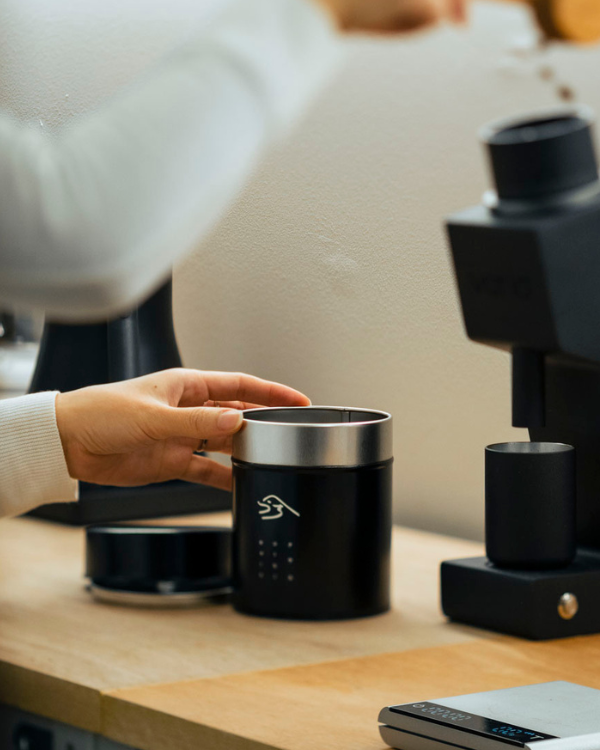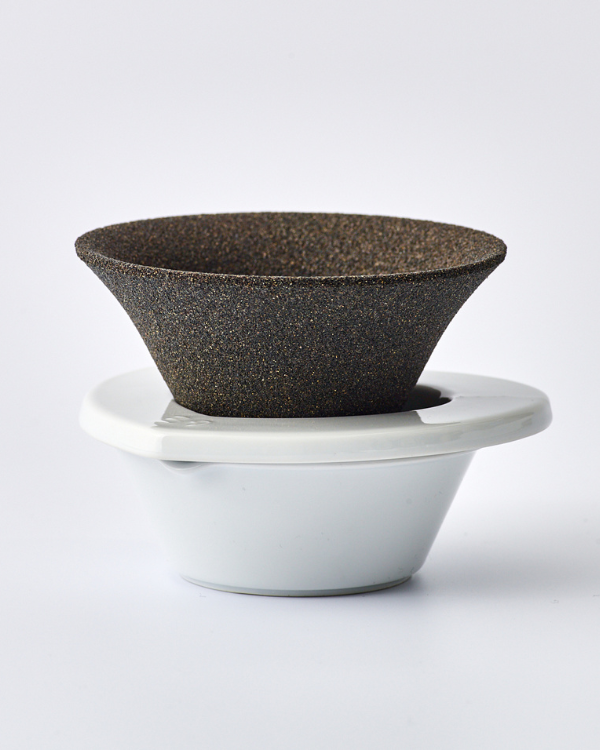The next #kurasucoffee roaster is TRUNK COFFEE in Nagoya. We have a great relationship with them and we always find inspiration in how they are passionate and influential. We interviewed Suzuki-san, our good friend and the owner of TRUNK COFFEE.
A Prologue to the Journey
Suzuki-san started his career at a travel agency, H.I.S. His friend, Tanaka-san, who went on to become his business partner and a roaster at TRUNK COFFEE was also working there. They spent busy days assisting other people organising their trips - they were yet to see that their own journey was already waiting for them.
After 3 years, Suzuki-san quit H.I.S. and moved to Europe which had been his long-time dream. The choice of English-speaking destinations were England, Ireland and Malta. Having travelled around as a student backpacker, Suzuki-san's adventurous mind decided to pick Malta, just because he knew the place the least.
Grabbing the Chance
During the days at Malta, Suzuki-san also travelled around many European countries, and visited multiple cafes. Every country showed him its unique cafe culture, but Suzuki-san realized that they had one thing in common- although the time spent at a cafe often felt somewhat otherworldly, they still remained a key place in people’s daily lives. They were providing something extraordinary but simultaneously essential to life. Suzuki-san was amazed to see how cafes are treated as part of mainstream culture in European society, and the respect people had for the careers and people working at them. While Japanese kissatens have always been looked up to, choosing a career as a barista or a cafe owner was still considered subcultural, despite the fact that going to cafe itself was a luxury. Suzuki-san started to dream about innovating that position in Japan and establishing cafes as places warm in people’s hearts.
To learn more about coffee and cafe management, Suzuki-san chose Denmark as his next destination- the country which has had the most success at producing world champion baristas.
Suzuki-san rented a room in Copenhagen, and while there, he fell in love with coffee and started his career in the industry.
Predictably, finding a job wasn’t easy: while Suzuki-san could speak English he could not speak Danish, he didn’t have any experience in the industry, and it was not common for Denmark to employ Japanese workers. Setting himself a time limit of 3 months to find something, Suzuki-san knocked on the door of every cafe he could find. It seemed a fruitless search as no cafe that would give him a chance until one day he stumbled across one small cafe that offered him work for 5 days, but voluntarily, without a salary. The cafe was tiny, located on the outskirts of the city- it didn’t even have a name- but to Suzuki-san, it was his golden thread of hope.
He worked non-stop for 5 days, and on the 6th day, Suzuki-san decided to do something rather absurd- he went to the cafe, and started to work just like the days before. Surprisingly, no one really said anything, and while he wasn’t still getting paid, Suzuki-san kept on showing up at the cafe.
While Suzuki-san was mastering the basic skill as a barista, he frequently visited Copenhagen's most famous coffee houses including Coffee Collective and Estate Coffee, showering their staff with questions, returning to work to try them all out.His effort paid off as Suzuki-san became essential to their workforce, having the best skill at the cafe, and was finally hired officially.
Back to Japan
Suzuki-san also had a life-changing encounter during his year and a half living in Denmark- he was introduced to Kojima-san who was working as a barista at Fuglen Coffee Roasters, before later on becoming the general manager at Fuglen Tokyo. Kojima-san visited Denmark for a week, and Suzuki-san hosted him at his apartment, but with one condition- he asked that Kojima-san train him how to brew.
Soon after that, Suzuki-san was contacted by Fuglen as they were planning to open a branch in Tokyo and he was one of the few Japanese baristas who had real-life work experience in Northern Europe’s coffee scene. Suzuki-san was offered a position along with Kojima-san to open the cafe and manage it. After moving to Tokyo, Suzuki-san started to work on the shop, managing every detail down to painting the walls and choosing the vintage furniture himself.
After 2 years at Fuglen Tokyo, Suzuki-san decided to move on, and opened TRUNK COFFEE in his hometown, Nagoya. Nagoya appears to be a great place to set up in as its prefecture, Aichi, has one of the strongest cafe cultures, second only to their neighbouring prefecture of Gifu in terms of the amount of money spent at cafes. However, due to its traditional and deep-rooted cafe culture, it was not easy for someone new to enter the market. Suzuki-san, however, saw this not as a challenge but an opportunity- “being the only one automatically makes you the number one. I had to try it.”
A Partnership with Tanaka-san
“I’m all about moving forward, but Tanaka-kun is the opposite. He sorts out the mess I make, and his management skills makes us a great team” Suzuki-san says.
One thing Suzuki-san had in mind when he was looking for his business partner was that he wanted someone from outside of the industry, because he wanted to do things differently.
Suzuki-san started to feel that way when he realized that the attitude towards coffee as a business was fundamentally different between Denmark and Japan. In Denmark, coffee was a business after all- providing high quality coffee was of course essential, but profit should always come first. However, in Japan, Suzuki-san witnessed so many roasters and cafes that pursue the quality too much without any realistic business models, and many of them just assumed that the money would start flowing once their work got recognition. Japanese culture tends to value the attitude of providing hospitality and quality for a low price, and there is also an idealism that praises artisans who don’t work for money but for their pride. Suzuki-san felt that it was crucial to change that trend in Japan and make coffee business into something that actually makes money, to improve the work environment for the baristas and roasters would then eventually push their status up within society.
Suzuki-san contacted Tanaka-san as he recalled Tanaka-san’s meticulous and stoic work ethics during their time working together at H.I.S.
Coincidentally, Tanaka-san was thinking about starting a business as well so Suzuki san talked him into travelling to Denmark where they stayed for a month and visited cafes experiencing the craft of the best baristas where they received a great deal of advice, helping them establish their knowledge and vision.
Later they established their coffee profile by adjusting Northern European style profile to Japanese water.
They located their cafe/roaster slightly out of central Nagoya to motivate themselves to keep providing their customers an incentive to travel a bit extra to visit. They are now roasting at least 3 days a week, but some weeks they roast everyday, and they are keen to be open about their technique and style, just like the roasters in Denmark are.
They host free cupping sessions twice a week, and frequently invite baristas from Tokyo, who they then visit in return, to build up a good network and to constantly educate people about specialty coffee.
The New Trend TRUNK COFFEE Sets
Along with the quality of coffee they are serving, TRUNK COFFEE is also known for their innovative collaboration beyond the boundary between industries. They once collaborated with Nagoya’s local football team, Nagoya Grampus Eight and produced signature goods. Recently, Suzuki-san contacted a youth club of the local Buddhist altar manufacturer and suggested to create an espresso machine cover applying their excellent crafting skills on wood carving and gilting.
One of the most remarkable collaborative products of TRUNK COFFEE is the ORIGAMI series, made with the Mino-yaki porcelain-making technique which is a traditional craft of Gifu. With its fresh, colorful and modern look of their mugs and drippers, the series introduces coffee lovers to the quality of their craftsmanship. After the series became a hit, the manufacturing factory started to get orders from big companies such as UCC and FBC International- this is merely a one example of TRUNK COFFEE making differences in the local community and connecting industries.
Suzuki-san says being in a rural area makes the local community smaller and it enables him to freely work with anyone he likes. He has been working with a department store, Takashimaya, JRA (Japan Racing Association), Volvo and many other companies regardless of the industry. A few years ago, TRUNK COFFEE worked with Tamamura Honten Sake brewery well-known for their Shiga Kogen Beer to make the first coffee beer with a full cooperation between a roastery and a brewery. “Our logo was in liquor shops all over Japan- it was such an exciting moment” Suzuki-san recalls with a shining smile.
“I want to do something can be done only in Nagoya. It is really important to integrate more with local businesses, because there is definitely something you can’t see if you stay inside of the coffee industry. We need to remove the boundaries, stand in the same place and share the view only can be seen from there. I want TRUNK COFFEE to be something that makes changes” Suzuki-san says.
Just like spreading a travel bag full of memories and curious souvenirs from around the world, and just like a magician’s bag that always has something unexpected and exciting jumping out, TRUNK COFFEE shows us the ever-changing view of the world.


